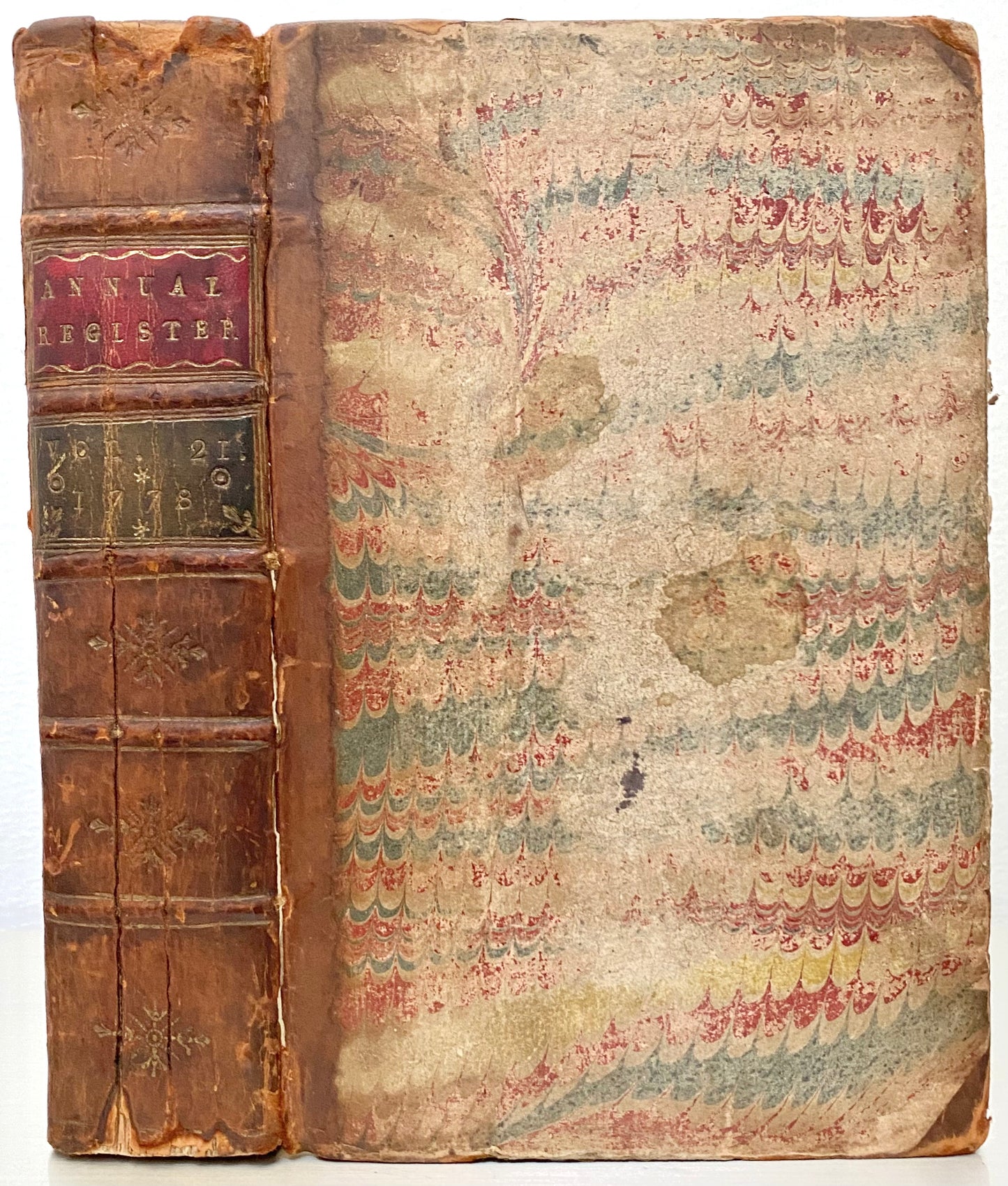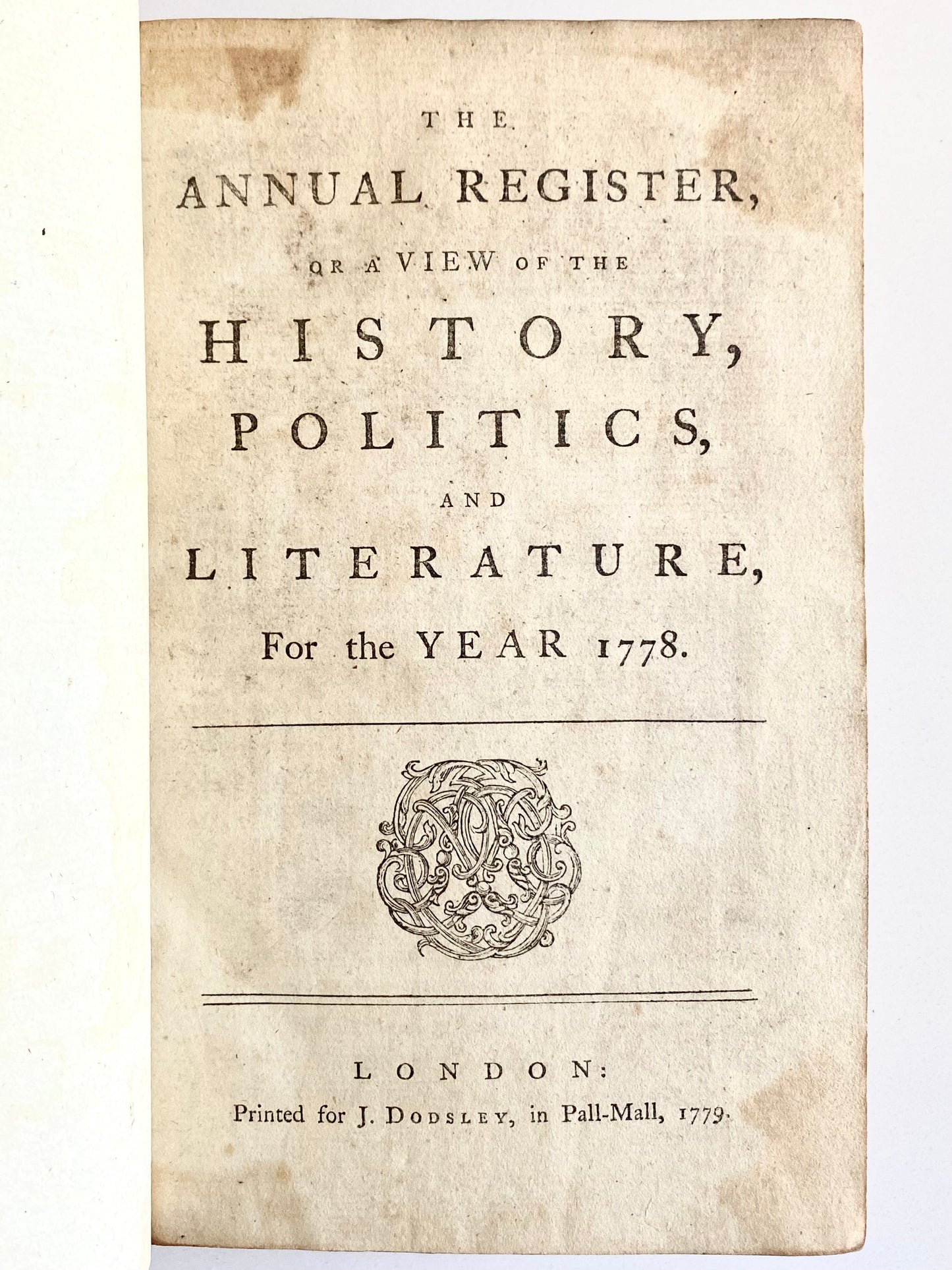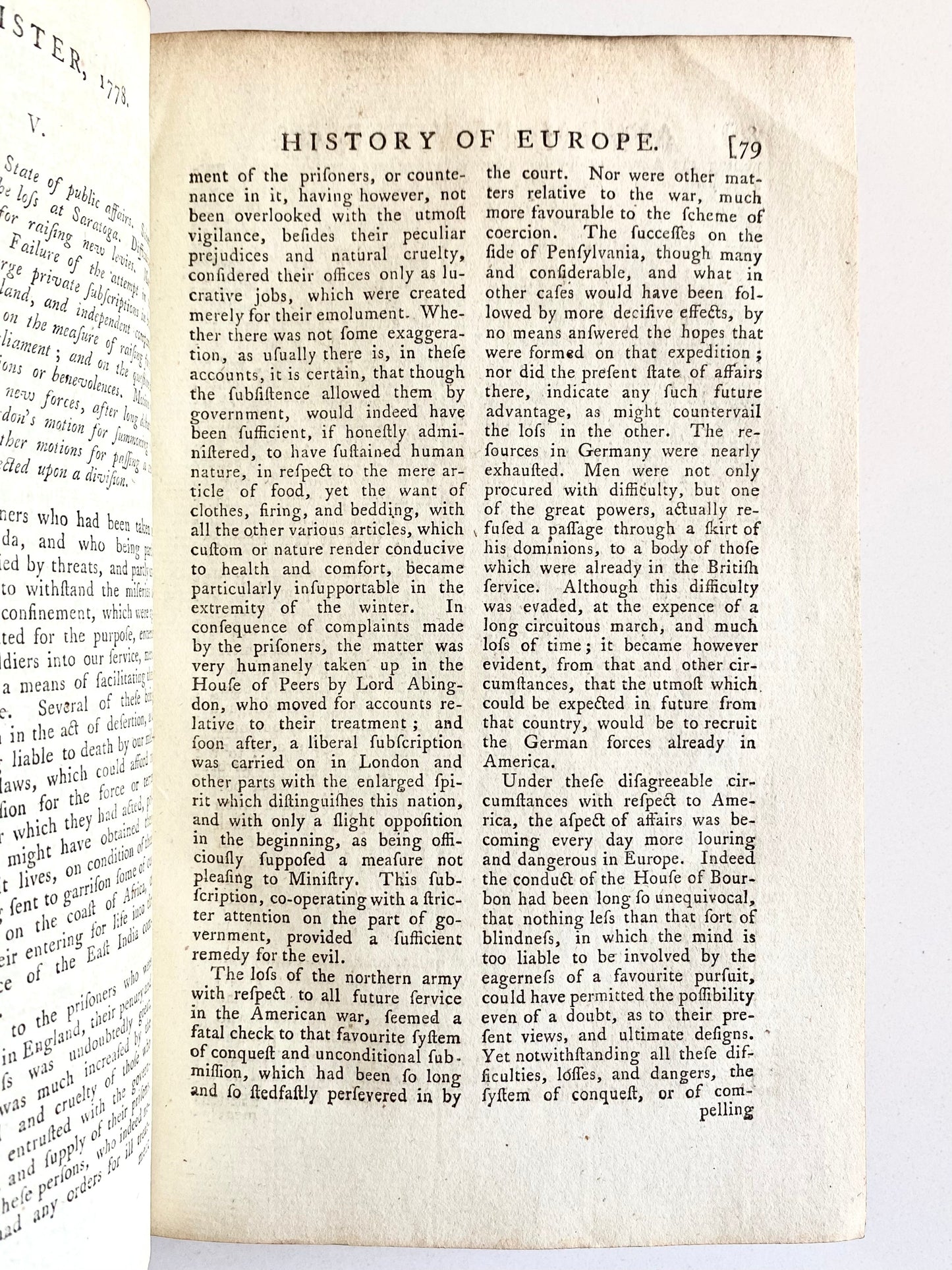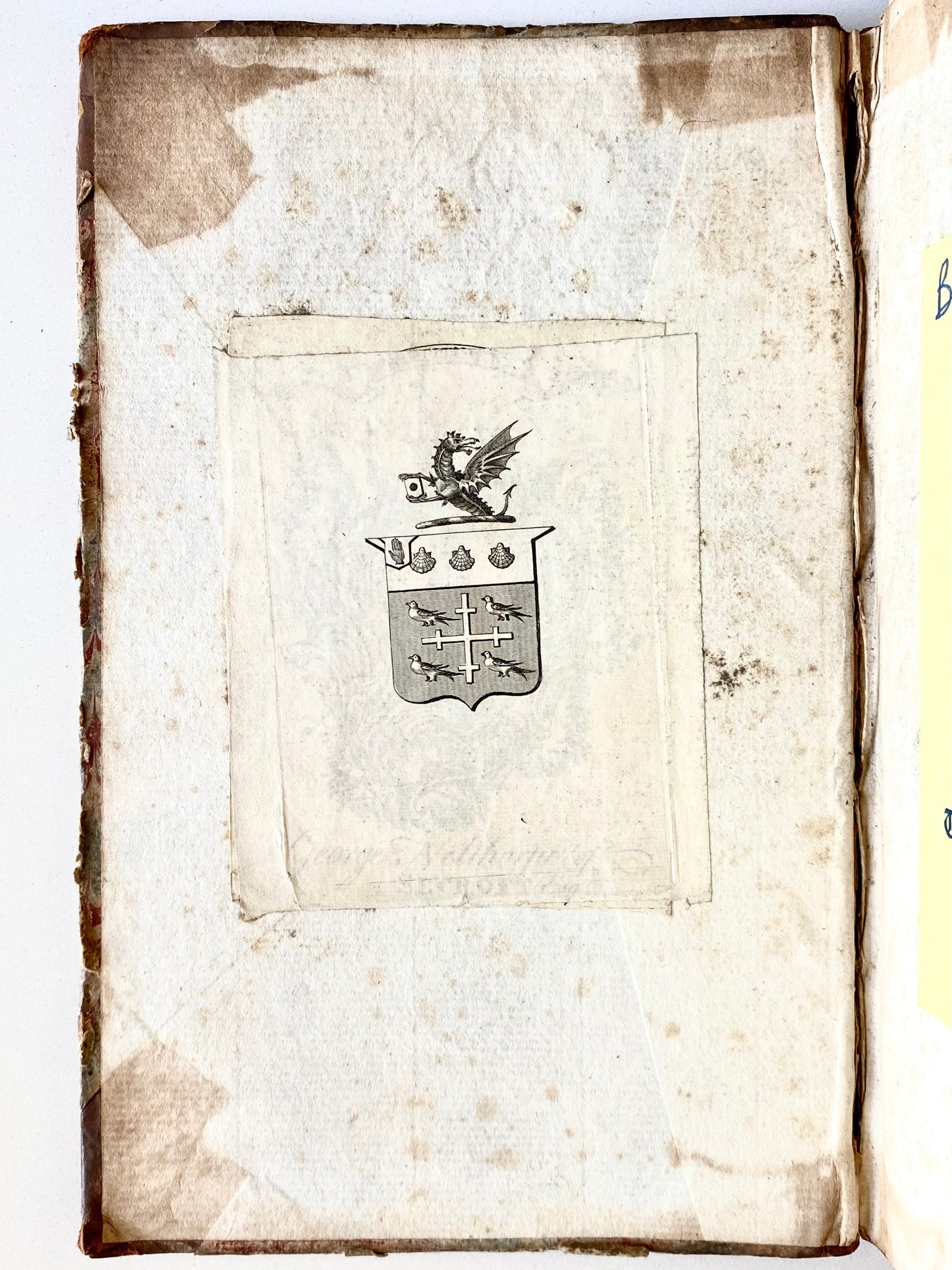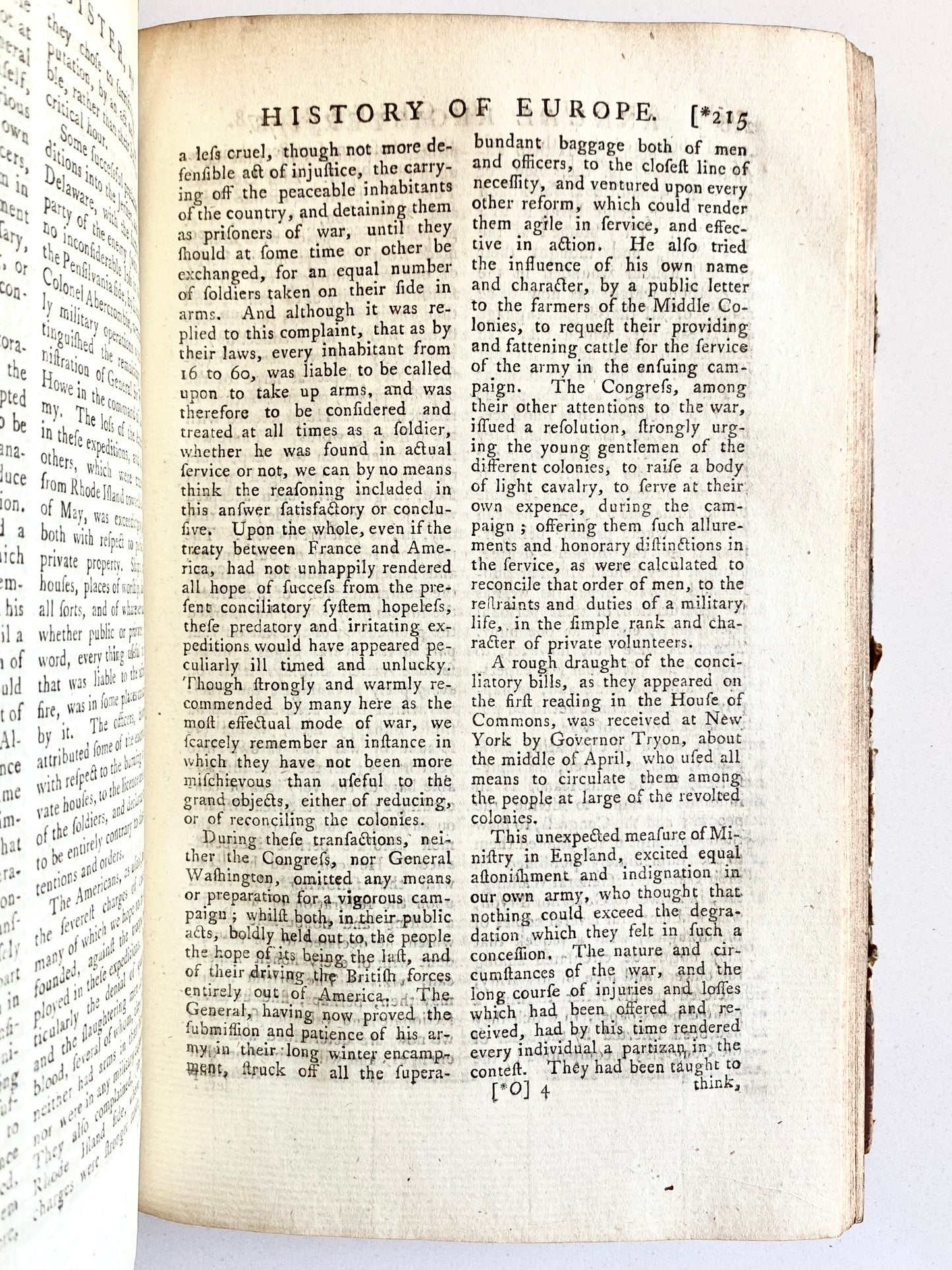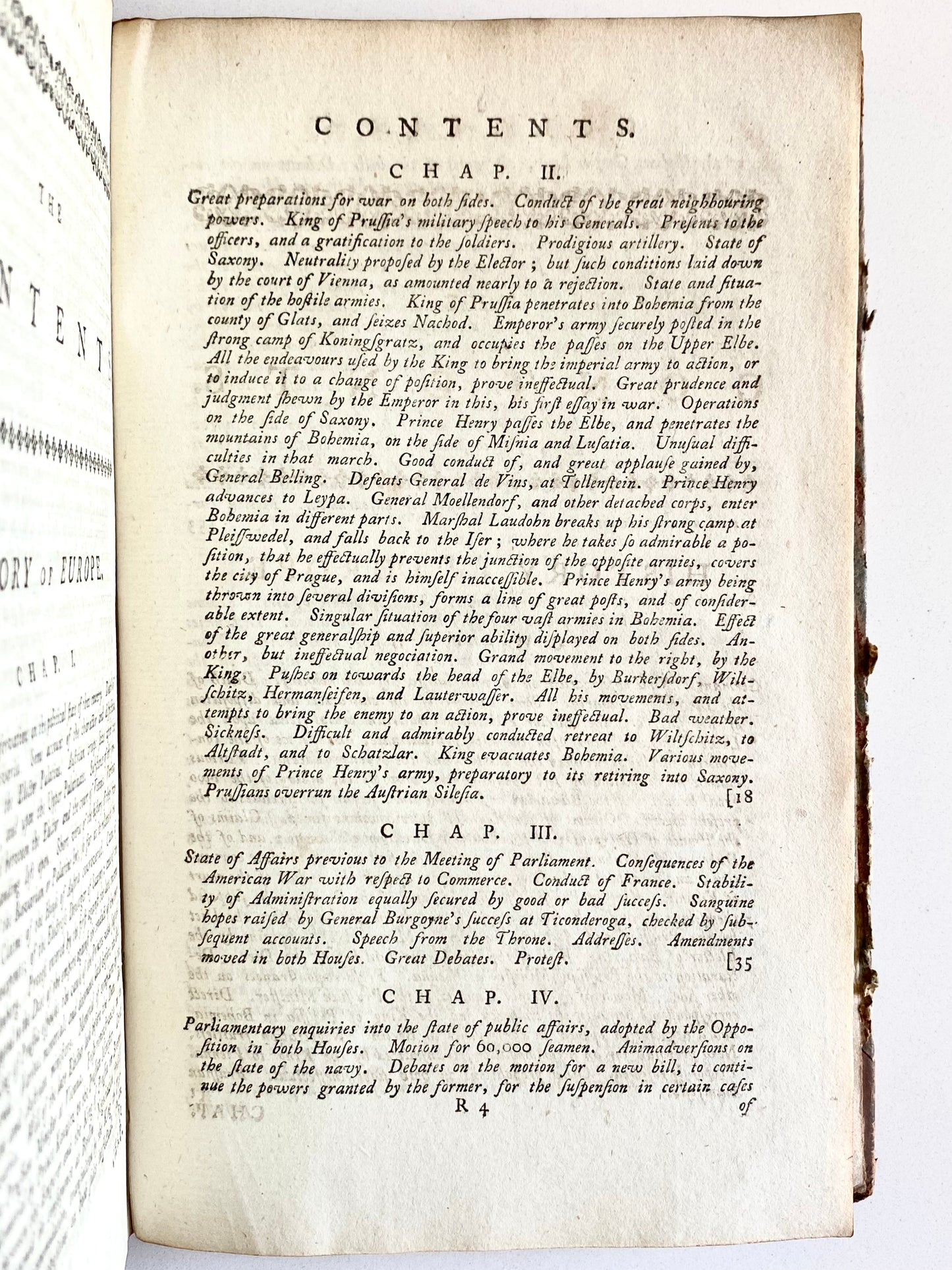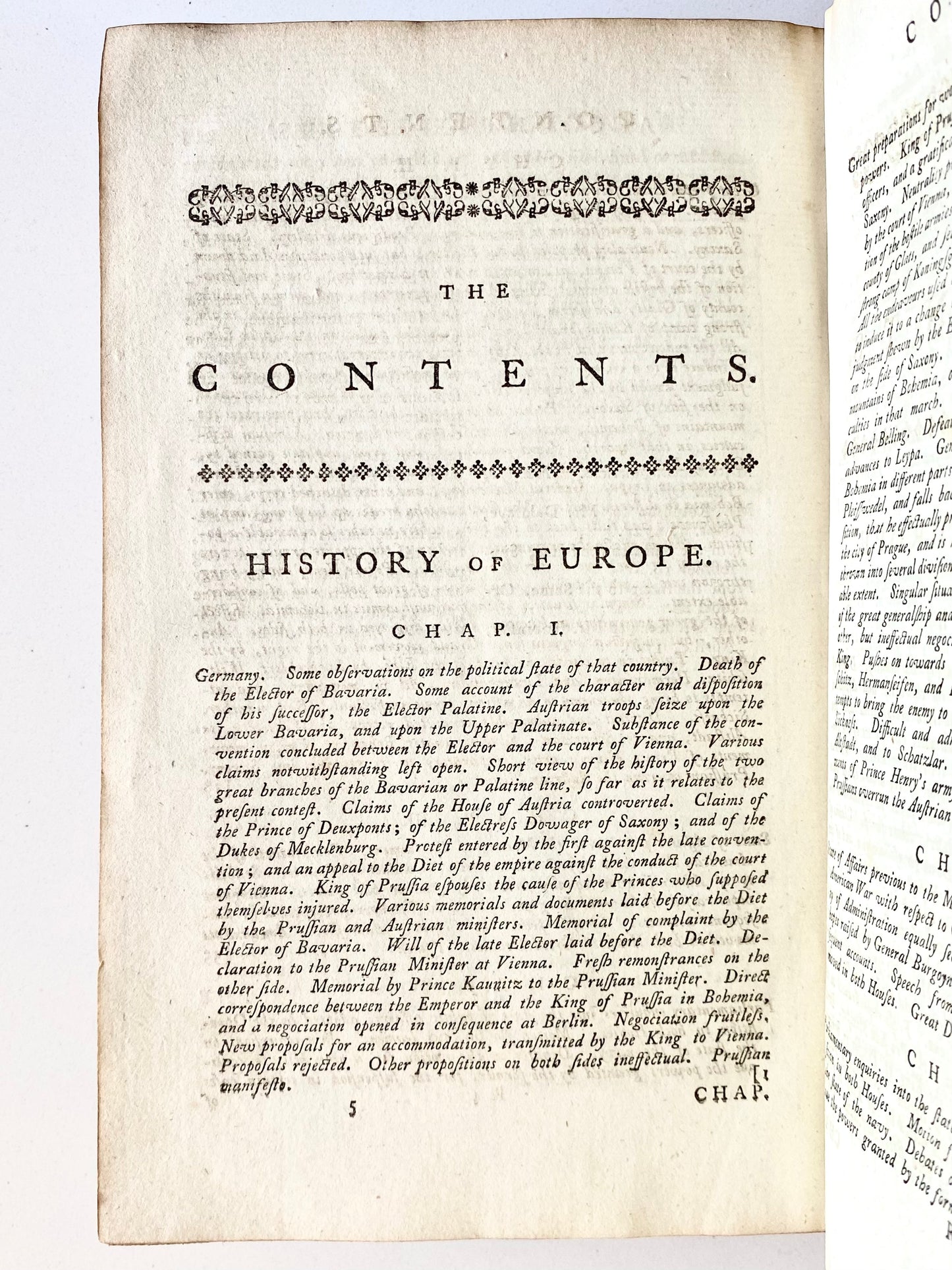Specs Fine Books
1778 AMERICAN REVOLUTION. George Washington, John Hancock, Boston Tea Party, etc.
1778 AMERICAN REVOLUTION. George Washington, John Hancock, Boston Tea Party, etc.
Couldn't load pickup availability
An absolutely fascinating first edition of the Annual Register during the opening days of the American Revolutionary War. The attempts to control and localize the War are evident. The Tea Tax is repealed . . . perhaps that will help. George Washington crosses the Delaware . . . that can't be good. And the old Duke of Richmond is seen subtly throughout attempting to end the War in favor of the Americans. Full texts of responses to the Declaration of Independence, of the Treaties with France and America, etc., are reproduced as well.
A full description of the contents is available below.
Please note that when this comes to market, it is often a later imprint. This is, as rarely appears, the true first edition.
Burke, Edmund [ed.] The Annual Register, or a View of the History, Politics, and Literature for the Year 1778. London. Printed for J. Dodsley, in Pall-Mall, 1779. First Edition. 334 + 245 + Contents.
Original half leather, attractive and generally sound with vertical surface split to spine which remain architecturally sound with a bit of care. Contents very clean and complete. Hinges breached at leather, but sound. Blank rfep lacking.
Early bookplate of George Nelthorpe of Seacroft, and that covered by another early bookplate perhaps of the Chase family. Those on pastedown. Ffep bears a plate from The Saint Andrew Society of Glasgow.
CONTENTS INCLUDE:
Includes accounts and mentions of: Financial Consequences of the "American War;" General Burgoyne's Reported Success at Ticonderoga Checked by Subsequent Accounts; Debate on the Employment of the Savages in the American War; Concerns about the Harsh Treatment of American Soldiers Held in England; Plans to Raise Troops to Replace those Lost at Saratoga; A Report on the Loss of Forces in America; The National Advantages of the American War [fascinating debate regarding whether the War was a net loss or gain to the British economy]; On the Treaty between France and the Americans; A Plea for Repeal of the American Tea Act [which led to the Boston Tea Party - too little too late I'm afraid]; A Statement of the Expenses Relative to the War in America; A Motion of the Duke of Richmond for Withdrawing Forces from North America [who was quietly in favor of American Independence]; A Report on the State of the Hostile Armies in Philadelphia and its Neighbourhood During the Winter; The Hard Condition of the Army at Saratoga; A Predatory Expedition from Philadelphia and Rhode Island; Presentation of a Draught of the Conciliatory Bills Published in America and its Effects and Reception by the American Congress; Sir Henry Clinton's Command of the Army at Philadelphia; General William Howe Returns to England; The Evacuation of Philadelphia; Difficulties of the Army in their March Across "the Jersies;" General George Washington Crosses the Delaware; Toulon Squadron Arrive on the Coast of America; Alarm and Preparations at Sandy Hook and New York; Appointment of a Commission to "quiet the disturbances now subsisting in certain of the American Colonies;" A Response to the Declaration of Independence by Le M. De Noailles [p.291]; Full text of the Commission Granted to William Howe for "Quieting and Extinguishing of Divers Jealousies and Apprehensions of Danger in the Americans;" Full text of the "Manifesto and Proclamation by his Majesty's American Commissioners;" An "Authentic Copy of the Instructions Given by [the American] Congress to the American Plenipotentiaries sent to Several Courts of Europe [enlisting their aid against England] from John Hancock as President of the Congress; Letter from General George Washington; A Treaty of Alliance between Louis the Sixteenth and the Thirteen United States of America [in full]; etc.
*See pp. 325-340's for important section of full text documents relative to the Revolution.
Share
